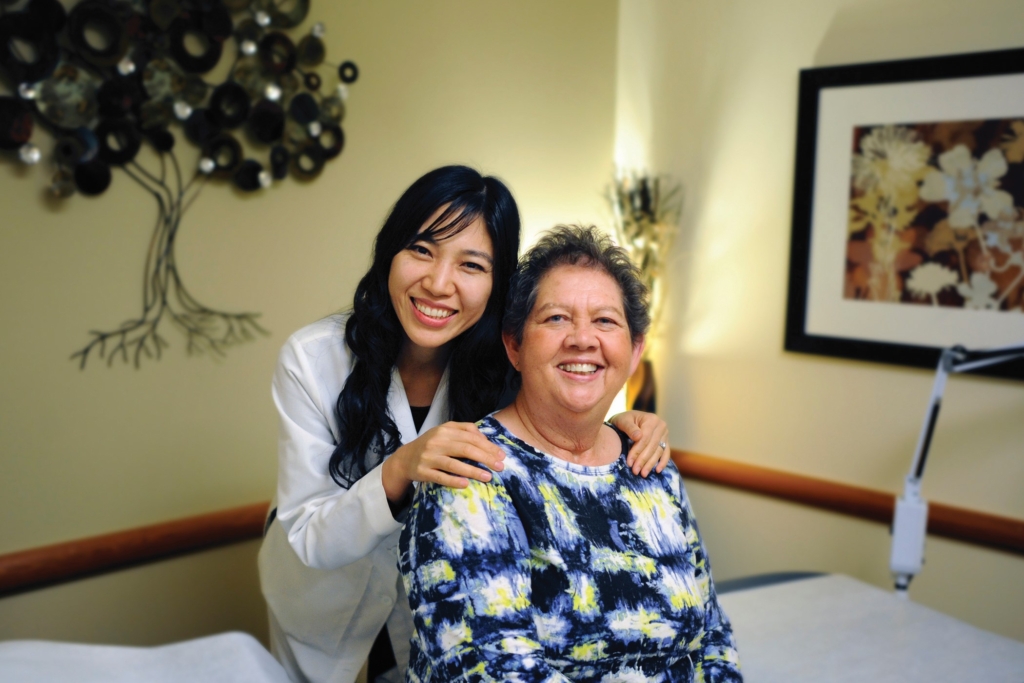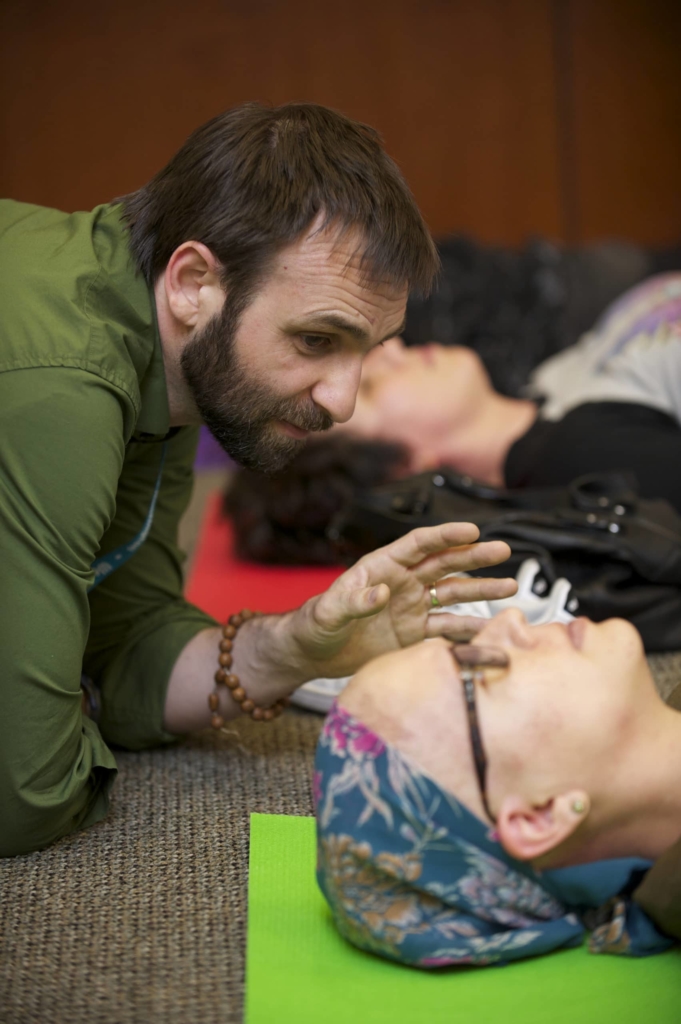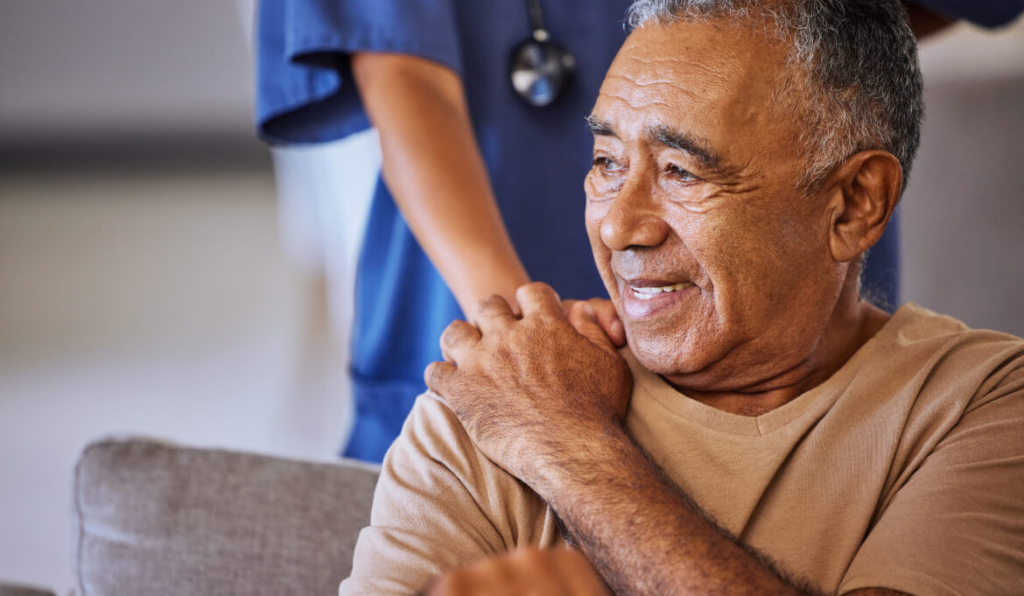Cancer Center Support & Survivorship Services
We are proud to offer an unrivaled patient support and survivorship program, including care coordination from day one and a support services program that provides an extensive network of free or low-cost services to all patients with a cancer diagnosis. Our support services include our renowned Integrative Oncology program, support groups and more.
Integrative Oncology Program
The Huntington Cancer Center was founded on the philosophy of a whole-person, patient-centered approach to cancer care. Our Integrative Oncology program provides patients with evidence-based, natural and cost-effective healing modalities in cancer care that are designed to support them through each phase of their treatment. The goal of Integrative Oncology is to increase quality of life, enhance cancer treatment, and support conventional cancer therapy.

Therapies include:

- Acupuncture (New patients receive the first two sessions at no charge;
thereafter $30 each, payment via credit card only, we do not bill insurance. - Mindfulness/breathing exercises
- Integrative health coaching on self-care and stress management
- Kinesio taping
To schedule any of the above, please call (626) 807-9168
Virtual group meditation and hypnotherapy – for class dates and
registration, please call Pierre-Etienne Vannier (626) 484-8396 or email
[email protected]
Therapeutic Massage– to schedule, please call Marina Hsiao at (626) 716-0160.
Therapeutic Yoga – to schedule, please call (626) 403-3961.
Learn more about our Integrative Oncology program.
Appearance Center
The Constance G. Zahorik Appearance Center, located in the Huntington Pavilion, assists patients in dealing with the cosmetic side effects of their cancer treatment.
Learn more about our Appearance Center at the Huntington Cancer Center.
Eating Well Through & After Cancer Treatment
Our oncology dietitian offers nutrition counseling to cancer patients to help meet their nutritional needs and manage their symptoms while undergoing treatment, and as a cancer survivor. Read these healthful tips.
Lung Cancer Support Group
We host a virtual lung cancer support group for those newly diagnosed and their families.
Please call (626) 397-2528 for information and registration.

Nurse Navigators
Our registered nurse navigators personally guide you through every step of your journey, from diagnosis to survivorship. Our premiere facility offers the most up-to-date technology in a tranquil, spa-like setting where every care team member is committed to supporting you and your loved ones.
Specialty Care Programs
Cancer Pain and Symptom Management
The Palliative Care Program at Huntington Hospital provides treatment for the relief of cancer symptoms such as pain and treatment-related side effects. The program is led by specially trained registered nurses who work closely with the patient’s physician to improve the patient’s comfort and quality of life during their cancer treatment.
Genetic Counseling
Over the past several years, inherited factors, or genes, have been identified that can contribute to the development of some forms of breast, ovarian, colorectal and other types of cancer.
Huntington Cancer Center offers hereditary cancer risk assessment and genetic counseling to people who are concerned about their personal and/or family history of cancer and risk to other family members.
Wellness Class for Cancer Survivors
Still feeling lost and unwell after cancer therapy? This class is especially for you. Click here to learn more.
To register, please call Suzie Kline at (626) 807-9168 or email [email protected]

For Trusted Care
Get the Cancer Care You Need
Call us to learn more about our trusted cancer services and to receive a physician referral.
 English
English Espanol
Espanol 简体中文
简体中文 Tagalog
Tagalog հայերեն
հայերեն 한국인
한국인 Tiếng Việt
Tiếng Việt فارسی
فارسی русский
русский 日本
日本 عربي
عربي